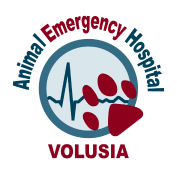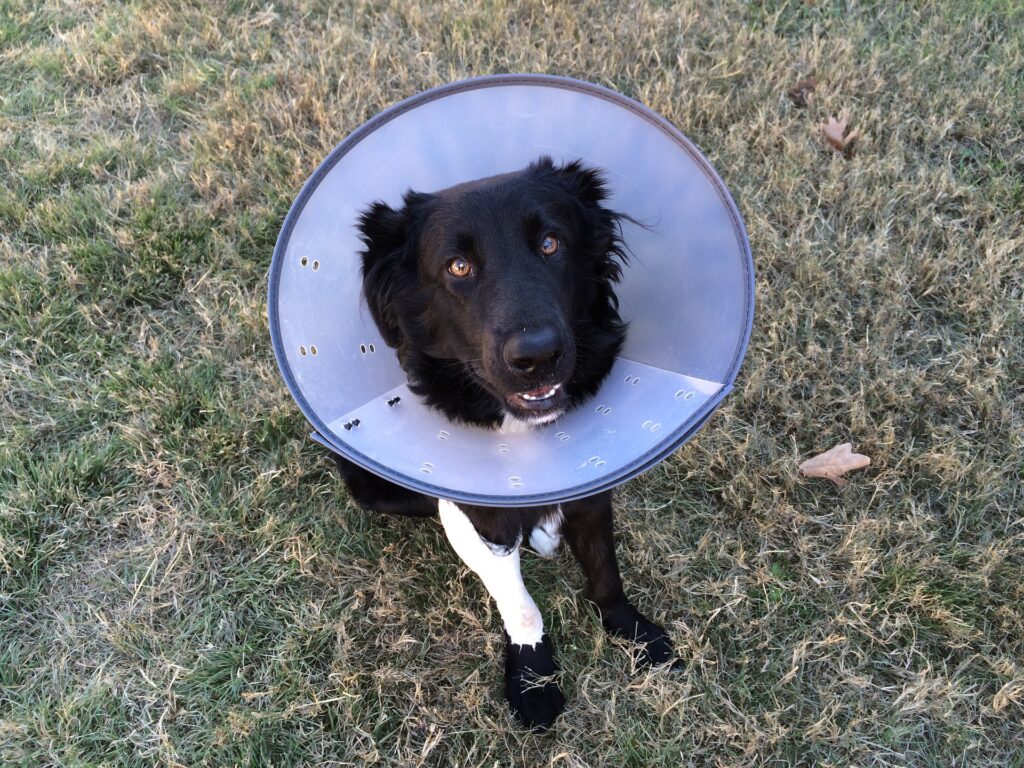Nobody wants to think of their pet having to go under the knife. But in some cases, surgery is necessary for dogs and cats, either in an emergency situation or to remedy a non-life-threatening injury or illness.
Thankfully, several of our emergency veterinarians have done extensive training and now have years of experience with many advanced veterinary surgical procedures.
Veterinary Emergency Surgery
These are some life-threatening conditions we see that require urgent surgical care:
- Bloat: Also called gastric dilatation volvulus (GVD), bloat is an extremely dangerous condition in which gas accumulates in the stomach (dilatation) and the stomach twists (volvulus), cutting off the blood supply to vital organs and inhibiting digestion and breathing. Symptoms include unproductive retching (your dog is trying to throw up, but nothing is coming out), a swollen, firm abdomen, labored breathing, and lethargy. Surgery is critical to deflate and untwist the stomach, which may then be tacked to the abdomen wall (called gastropexy) to prevent future bloat.
- Foreign body ingestion: If your pet eats something they shouldn’t, especially if it’s large or sharp, and if it can’t be safely retrieved through an endoscope, surgery is often necessary to remove it and prevent internal damage.
- Internal bleeding: Trauma, tumors, poisoning, or viruses can cause internal bleeding, which can appear like a distended belly, pale gums, tenderness to the touch, and lethargy. After using advanced diagnostic imaging to determine the source of the bleeding, surgery is often needed to stop it.
- Fracture/trauma: Pets often break bones as a result of trauma like falling from a height or being hit by a vehicle. There are different kinds of breaks, and injuries can be compounded, so surgery can help us assess and treat all of them at once.
Orthopedic and Soft Tissue Surgeries for Pets
These are some of the non-urgent surgical procedures we frequently perform at AEHV:
- Cranial Cruciate Ligament (CCL) Injury: When dogs tear a CCL, it’s similar to a human tearing an ACL (knee). At AEHV, we have several options for repair of this injury dependent on the individual patient’s needs.
- Hip luxation, fracture, or arthritis: To help restore function and reduce pain to the hips, we use a procedure called femoral head and neck excision or ostectomy, which helps form a false joint.
- Medial patellar luxation (MPL): This is a common cause of lameness in smaller dogs, but surgery can correct severe cases by keeping the elbow from sliding out of its joint.
- Feline urinary blockages: Male cats are prone to blockages in their urinary tract, leading to dangerous toxic buildup in their bodies. If this is a recurring condition, a surgical procedure called a urethrotomy can help.
Pain Management and Anesthesia for Cats and Dogs
Managing pain in our patients has always been a focal point of our care. We carefully devise a custom anesthesia and pain management plan for each pet, ensuring the most comfortable recovery possible.
AEHV Offers a Full Range of Surgical Services and Special Procedures for Your Pet
There may be times when a board-certified veterinary surgeon may be recommended for your pet, in which case visiting a specialty hospital might make more sense. If you prefer to stay close to home, Animal Emergency Hospital Volusia (AEHV) can provide the appropriate diagnostics, expertise, and 24/7 hospitalization pets need to be cared for and heal well after surgery.
Please ask your primary care veterinarian to call 386.252.0206 and speak with a member of our clinical team if you believe your pet could benefit from a visit to AEHV.

